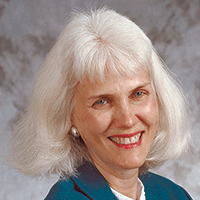Character Building: A Homeschool Mom’s Journey
By Rhonda Barfield
Printed in Practical Homeschooling #96, 2010.
 How Rhonda Barfield made character training part of her homeschooling curriculum
How Rhonda Barfield made character training part of her homeschooling curriculum

| 
|
Through 20 years of homeschooling, I often felt overwhelmed. It wasn’t
the housework that wore me down, or the cooking, errand-running, or
curriculum planning. Instead, I found that parenting, especially
character-building, challenged me most of all.
 Maybe it’s because, like most moms, initially I had a hard time
admitting my children could be at fault. “Lisa didn’t really mean to
smack her sister,” I’d tell myself. “The nasty neighbor kids must have
provoked Christian to scream at them,” I’d rationalize.
Maybe it’s because, like most moms, initially I had a hard time
admitting my children could be at fault. “Lisa didn’t really mean to
smack her sister,” I’d tell myself. “The nasty neighbor kids must have
provoked Christian to scream at them,” I’d rationalize.
It was also easy to let the small, yet crucial, moments for moral
training go by the wayside in favor of pushing ahead with school
assignments. Whenever I did this, I ended up regretting it. In fact,
because of a few neglected opportunities and their consequences, I
learned to place a high priority on teaching character development.
Through months of trial and error, I set up a schedule that reflected
this priority. For many years I rose early to pray and read the Bible
while munching on granola. That quiet time helped center me for the
rest of the day. Then, when the kids breakfasted around 8 AM, I read
aloud a chapter of Scripture, reviewed memorized verses, and discussed
catechism questions with them. Throughout the day we applied our study
to practical lessons. “Eric, remember how we learned to ‘Love your
neighbor as yourself?’” I’d ask. “How can you show love to Lisa right
now, even though you’re angry with her?” The earlier study helped me
to remember the importance of addressing these issues quickly.
I also found it easier to guide the children when I made the effort to
know and understand them better. My friend Mary found this true when
dealing with her young daughter’s inability to sit still while
completing school work. Mary talked it over with a local homeschool
support group leader, who told her, “This child has serious issues
with obedience. You need to discipline her firmly to get her back in
line.” But Mary understood her daughter’s temperament and disagreed.
Instead of following the advice, she found the source of her
daughter’s restlessness after researching ADHD. This helped her
implement new curriculum and teaching methods so her energetic little
girl could more easily learn patience and perseverance.
Often I’ve felt my own patience lagging, and that’s when my husband
came to the rescue. In late elementary school, my youngest, Mary, used
to pout about math homework. She didn’t realize Michael had walked
into the room one day, watching her, until he asked in a calm, low
voice, “Does someone need to work on her attitude today?” Mary changed
it immediately, because like all our kids she hated the alternative:
announcement of a father/child conference, child sent to her room to
“think about it” for an agonizing 10 minutes, direct confrontation,
and punishment assigned to fit the crime. As we used to say, “Mom’s
the teacher and Dad’s the principal” in both academics and character
building.
In fact, our family’s principal taught me a vital secret: the
importance of rewards. I once asked Michael why our kids seemed to
want to be with him more than with me. He answered that I tended to
give them only assignments and chores, while he sandwiched pleasant
experiences around the responsibilities. Over Burger King drinks and a
single order of fries, he taught our children to draw. He devised
geography games. He asked what the kids had learned in school that
week. He made it fun. The outings were so pleasant that they motivated
obedience and other positive traits.
Our homeschool centered on academics, but just as importantly, on
character development. We taught and implemented spiritual principles,
which helped our children know what God expected of them. Michael and
I tried to know our kids well enough to discern their motives and help
direct them. We worked together as a team to encourage them to do the
right thing. It wasn’t easy, but all the hard work yielded a rich
harvest: four young adults who are people of character.